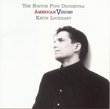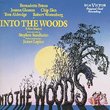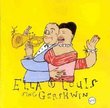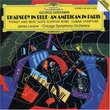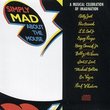| All Artists: Gerald Finzi, Charles Villiers Stanford, Charles Groves, Royal Philharmonic Orchestra, Malcolm Martineau Title: Gerald Finzi: Clarinet Concerto; 5 Bagatelles; Charles Stanford: Clarinet Concerto; 3 Intermezzi Members Wishing: 0 Total Copies: 0 Label: Asv Living Era Release Date: 12/17/1993 Genre: Classical Styles: Chamber Music, Forms & Genres, Concertos, Instruments, Reeds & Winds Number of Discs: 1 SwapaCD Credits: 1 UPC: 743625078725 |
Search - Gerald Finzi, Charles Villiers Stanford, Charles Groves :: Gerald Finzi: Clarinet Concerto; 5 Bagatelles; Charles Stanford: Clarinet Concerto; 3 Intermezzi
 | Gerald Finzi, Charles Villiers Stanford, Charles Groves Gerald Finzi: Clarinet Concerto; 5 Bagatelles; Charles Stanford: Clarinet Concerto; 3 Intermezzi Genre: Classical
|
Larger Image |
CD DetailsSimilarly Requested CDs
|
CD ReviewsFinzi's best in a rousing performance. Frank Beck | New York, NY USA | 12/28/1999 (5 out of 5 stars) "Gerald Finzi is a respected name in British music, but he is little known in the United States. While most of his best music is for voices--in particular, his settings of many poems by Thomas Hardy--his Clarinet Concerto may be his finest single work and deserves to be played and heard.The concerto is unmistakably modern but tuneful too, and the three movements are varied and well-matched. Emma Johnson gives the concerto a rousing performance, with lively accompaniment from Sir Charles Groves and the Royral Philharmonic. Stanford's Concerto, if less striking, is well-crafted and engaging. And Finzi's Five Bagatelles for Clarinet and Piano and Stanford's Three Intermezzi, for which Johnson is joined by pianist Malcolm Martineau, make a welcome bonus." Simply the best version of these two works Evan Wilson | Cambridge, MA | 07/21/2000 (5 out of 5 stars) "The Clarinet concertos of Charles Villiers Stanford and Gerald Finzi have been in vogue in recent years after many decades of neglect. Unavailable on record in the 70s and 80s, there have been multiple recordings of each in the 90s. This is the best of the bunch.Ms. Johnson is a spectacular young player who, alas, does not seem to have crossed the Atlantic. She produces a beautiful warm tone and has the temperment and flexibility to use rubato to great effect. (Too many clarinettists get hung up on the cool perfection the instrument can produce and the result is boredom.) She digs into this music and lets it sing.The better of the two pieces is clearly the Finzi, which reveals this composer's delight in aching suspensions and bittersweet dissonances. The second movement is truly profound, which is not a term usually applied to clarinet concertos. The first and last movements don't quite reach the same heights, but are full of memorable melodies. (Listen to the rondo finale and then just TRY to forget the rondo tune!!)Stanford's piece is the only late Romantic concerto currently in the repertoire. It is tuneful and pleasant with an acrobatic finale, but the listener is likely to feel it is not quite as satisfying a meal as the Finzi. Stanford never really steps outside the conventions of 19th century music to explore the possibilities of the instrument and, in fact, this piece is easier to play than the Weber concertos. Still, it is intriguing to hear and don't miss the horns in the slow movement.The filler is memorable as well. Johnson opts for a piano in the Finzi bagatelles--unlike Richard Stoltzman's arrangement for string orchestra--and they sound better this way. The piano emphasizes the simple, but beautiful harmonies, and lets the counterpoint in the finale really come out. The Stanford pieces are pleasing as well.If this repertoire sounds a bit esoteric, don't let that stop you. This wonderful music and this is truly GREAT playing."
|

 Track Listings (14) - Disc #1
Track Listings (14) - Disc #1